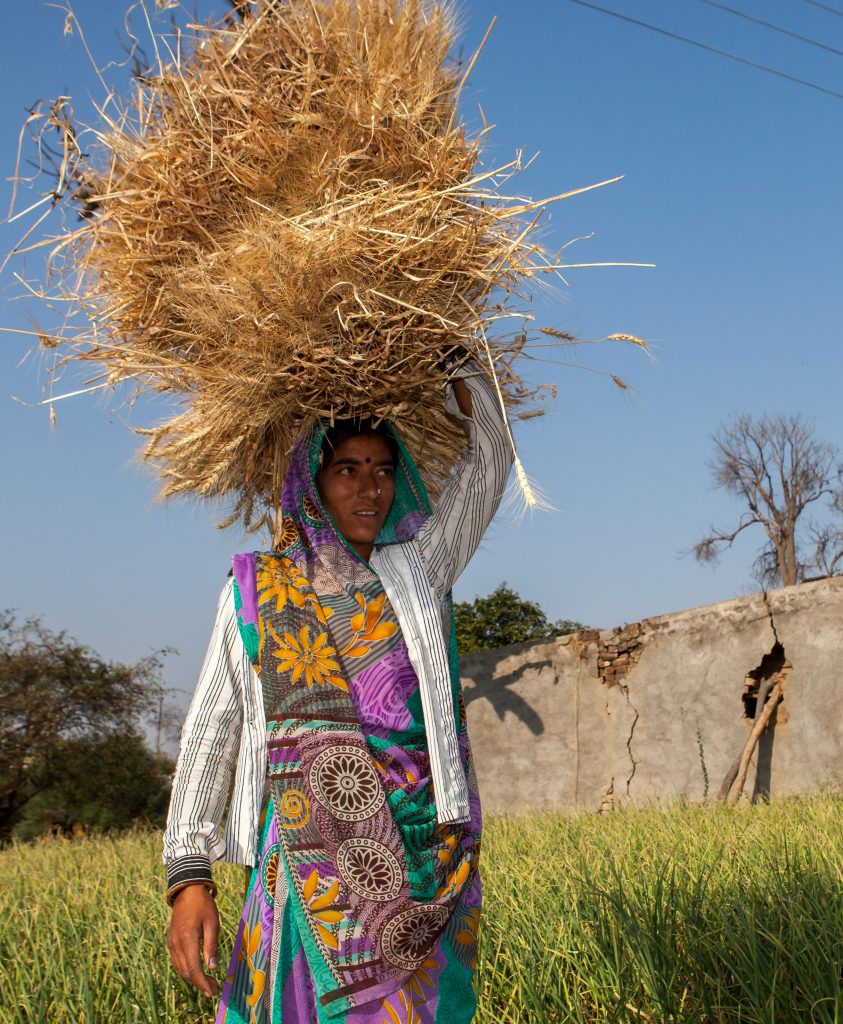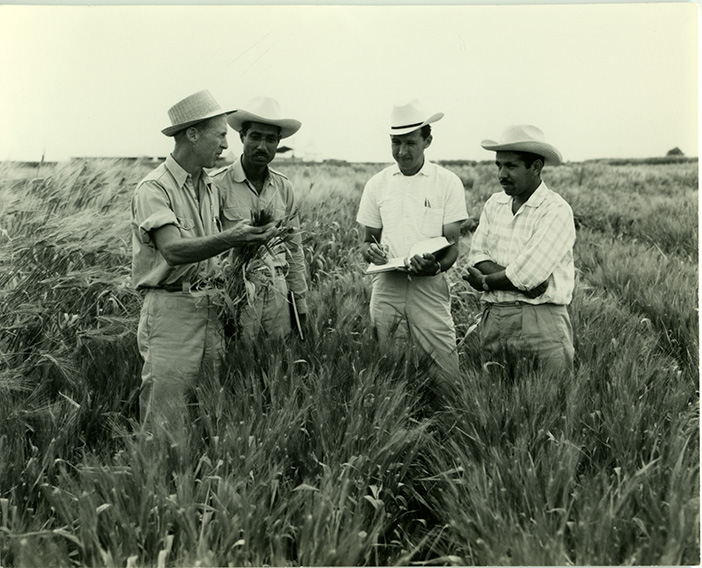Americas
CIMMYT has several offices in the Americas, including global headquarters in Mexico and a regional office in Colombia. Activities are supported by an additional 140 hectares of stations in diverse agro-ecological zones of Mexico. CIMMYT’s genebank in Mexico stores 27,000 maize and 170,000 wheat seed collections – key to preserving the crop genetic diversity of the region. CIMMYT projects range from developing nutritionally enhanced maize to mapping regional climate change hot spots in Central America. The comprehensive MasAgro project aims to increase wheat production in Mexico by 9 million tons and maize production by 350,000 tons by 2030. CIMMYT promotes regional collaboration and facilitates capacity building for scientists, researchers and technicians.
CIMMYT, Mexico honor legacy of Norman Borlaug
 Nutrition, health and food security
Nutrition, health and food security
To mark CIMMYT’s 50th anniversary, Mexico’s Secretariat of Agriculture launched a photo exhibition honoring Nobel Prize Laureate Norman Borlaug.
Maize: From Mexico to the world
 Climate adaptation and mitigation
Climate adaptation and mitigation
For Mexicans, the “children of corn,” maize is entwined in life, history and tradition. It is not just a crop; it is central to their identity.
Farmer livelihoods at risk as wheat blast disease emerges in Bangladesh
 Nutrition, health and food security
Nutrition, health and food security
International scientists are on high alert as they develop tactics to fight wheat blast in Bangladesh, which is affecting a large portion of the country’s wheat growing area.
Improving diet through nutritious maize in Colombia
 Innovations
Innovations
A field day was organized at the International Center for Tropical Agriculture to show the advances of biofortified maize in Colombia.
Global wheat breeding returns billions in benefits but stable financing remains elusive
 Climate adaptation and mitigation
Climate adaptation and mitigation
What do a chapati, a matza, or couscous have in common? The answer is wheat, which is a source for one-fifth of the calories and protein consumed globally.
Donors push for sustainable agriculture in Latin America and the Caribbean
 Capacity development
Capacity development
CIMMYT joins global partnership to find sustainable solutions to agriculture in Latin America and the Caribbean.
Global wheat community discusses research, partnerships at Obregon pilgrimage
 Nutrition, health and food security
Nutrition, health and food security
For hundreds of international agricultural development experts, an annual gathering in northern Mexico provides a vital platform for sharing and debating the latest wheat breeding news and research.
Scientists unearth genetic treasures from Mexico’s Creole wheats
 Nutrition, health and food security
Nutrition, health and food security
Findings can help to boost wheat’s climate resilience worldwide
At 50-year mark, CIMMYT scientists strive for gender equity
 Gender equality, youth and social inclusion
Gender equality, youth and social inclusion
Efforts to meet agricultural needs of women farmers to bolster global food security took shape in CIMMYT’s early days.
MasAgro named a project transforming Mexico by leading university
 Innovations
Innovations
The Sustainable Modernization of Traditional Agriculture (MasAgro) project was named as transforming Mexico by a leading university in the country.
New book details benefits of holistic approach to agricultural development in Mexico
 Capacity development
Capacity development
A book titled Options Available for Implementing MasAgro Technologies has been published which analyzes the options available for implementing sustainable agricultural practices and technologies in 23 Mexican entities
Inaugural Paula Kantor Award recognizes work on agriculture, gender, improved diets
 Gender equality, youth and social inclusion
Gender equality, youth and social inclusion
Post-doctoral fellow Soumya Gupta is the winner of the inaugural Paula Kantor Award for Excellence in Field Research, the International Centre for Research on Women announces.
From east Asia to south Asia, via Mexico: how one gene changed the course of history
 Nutrition, health and food security
Nutrition, health and food security
The story of how Japanese wheat variety Norin 10 saved millions from starvation and revolutionized the world of wheat.
Wheat scientists eye USDA $3.4 million in new funds to boost yields
 Climate adaptation and mitigation
Climate adaptation and mitigation
Scientists involved in a major global initiative aimed at increasing wheat yields as much as 60 percent by 2050 get a boost from U.S. government announcement of new research funds.

